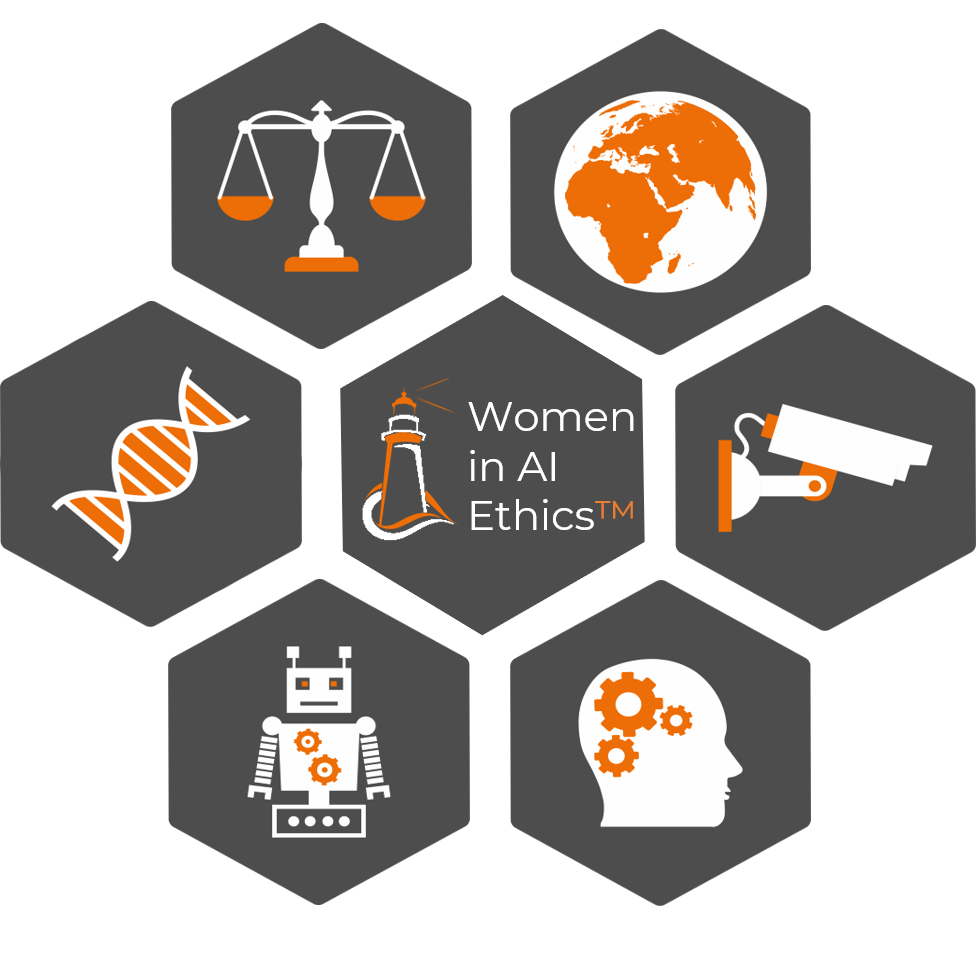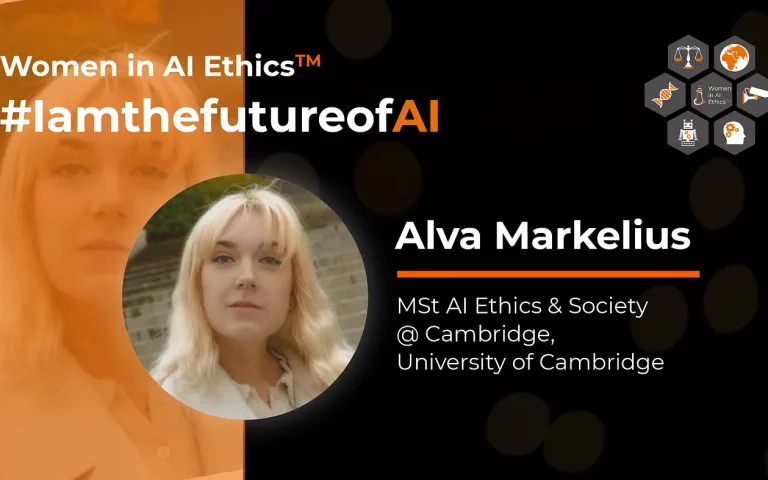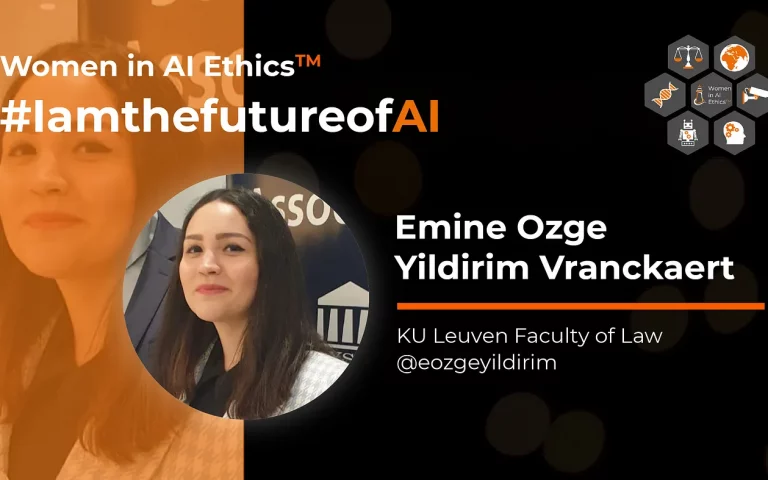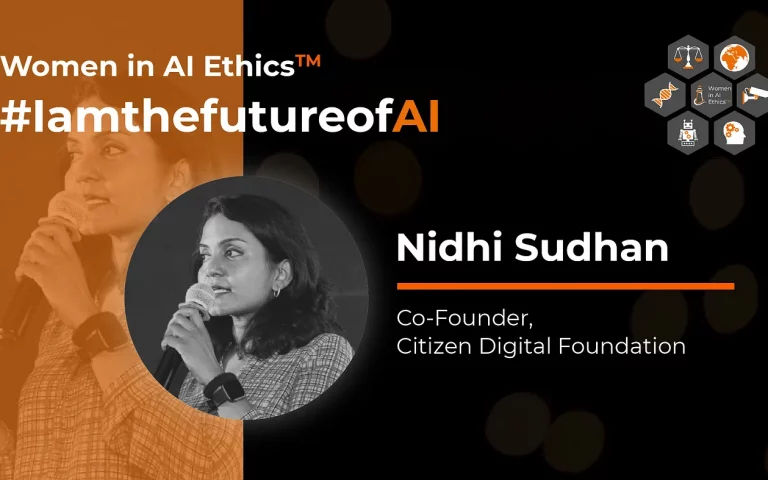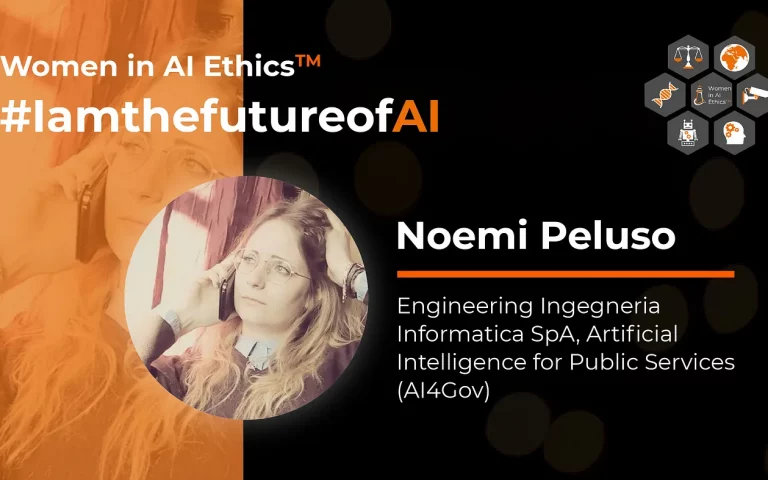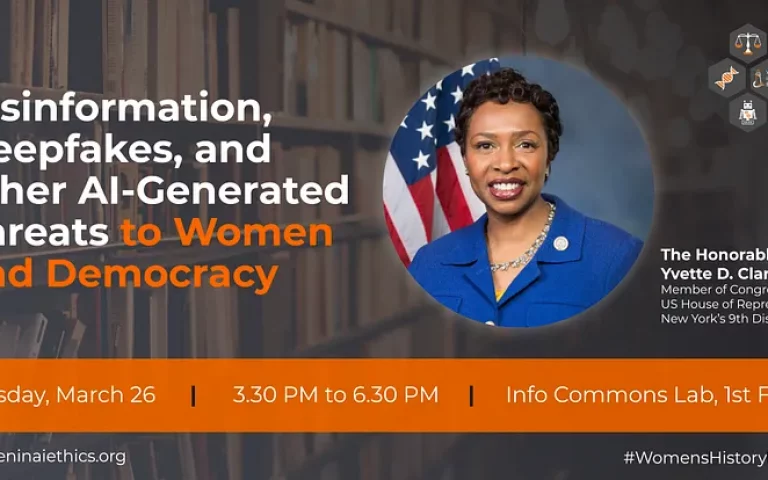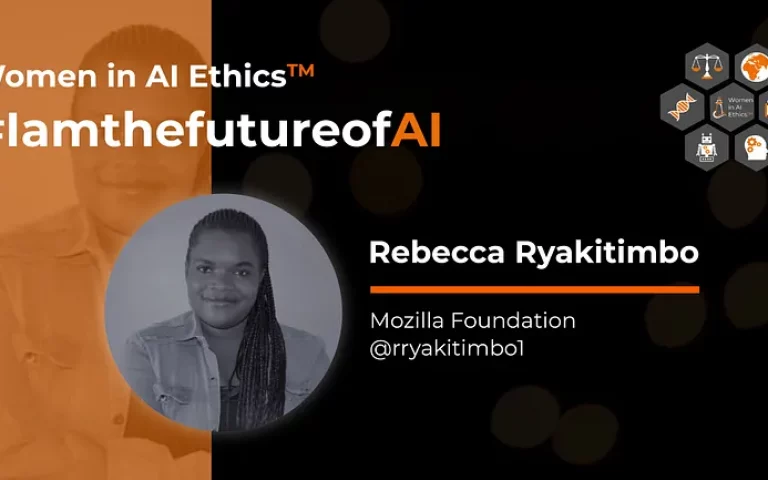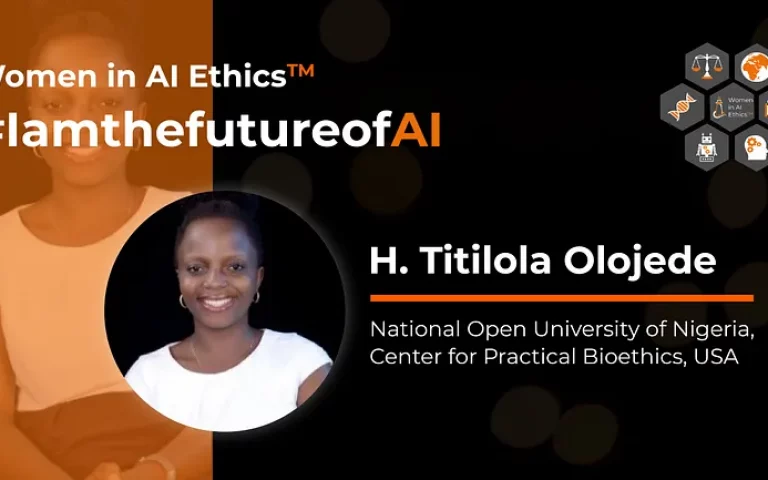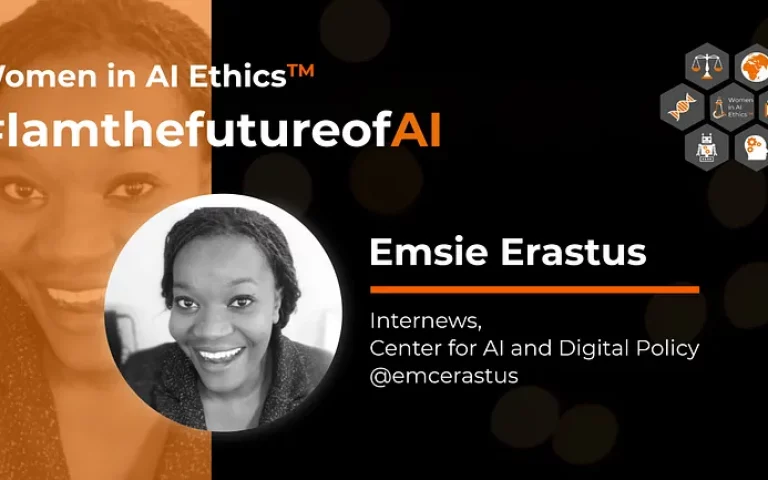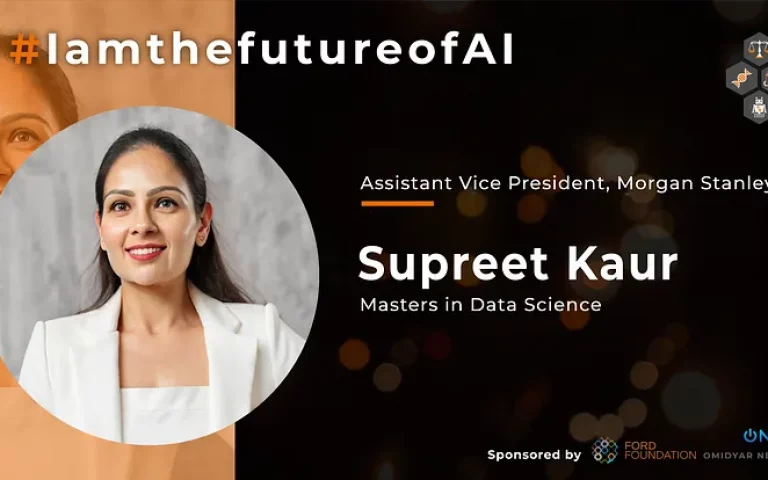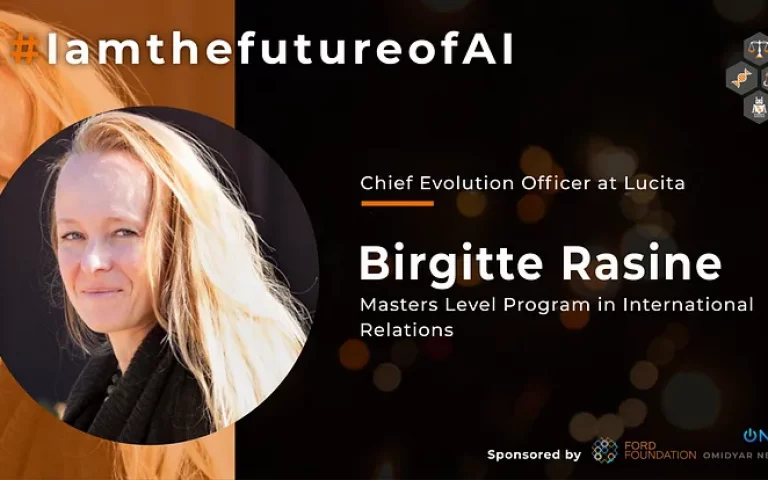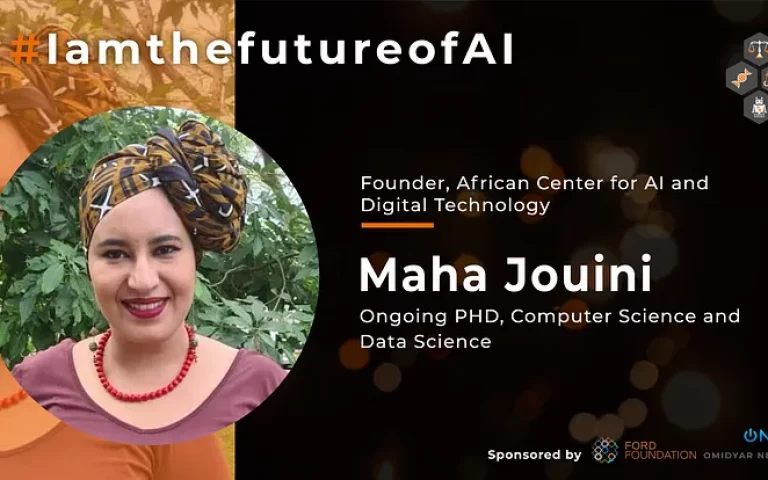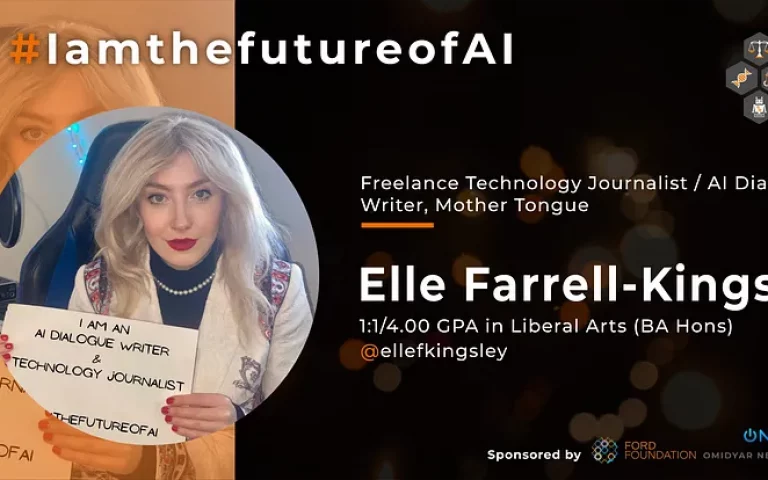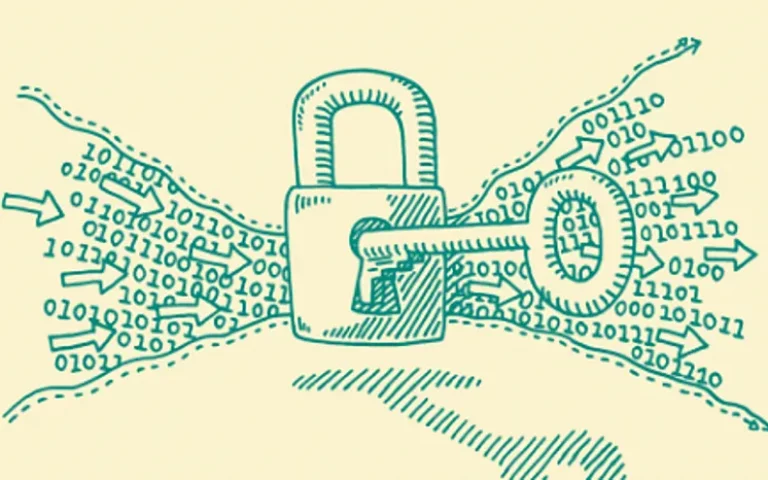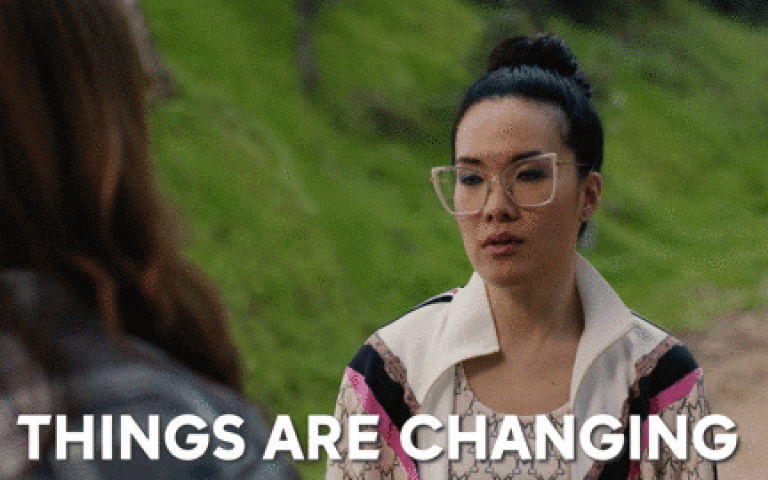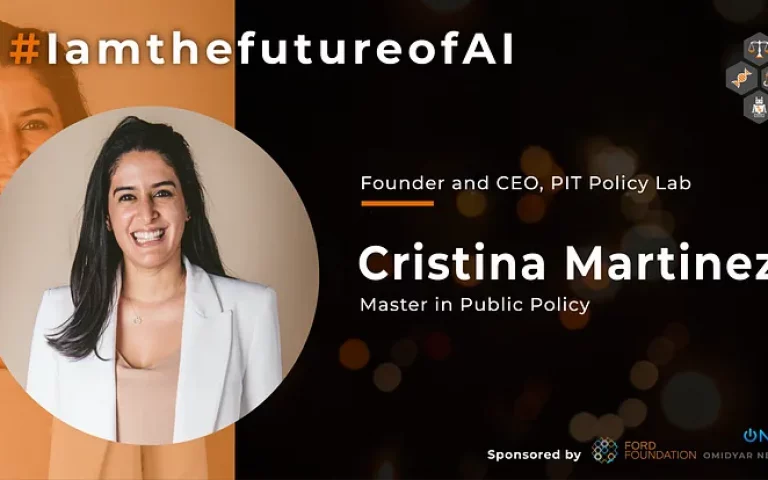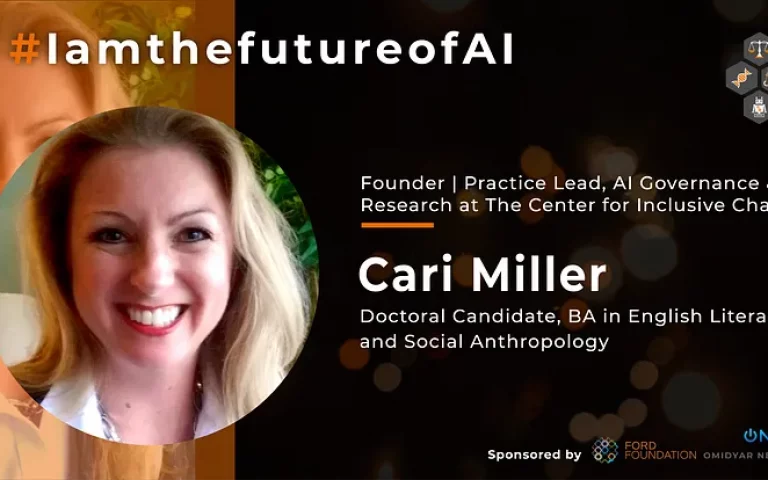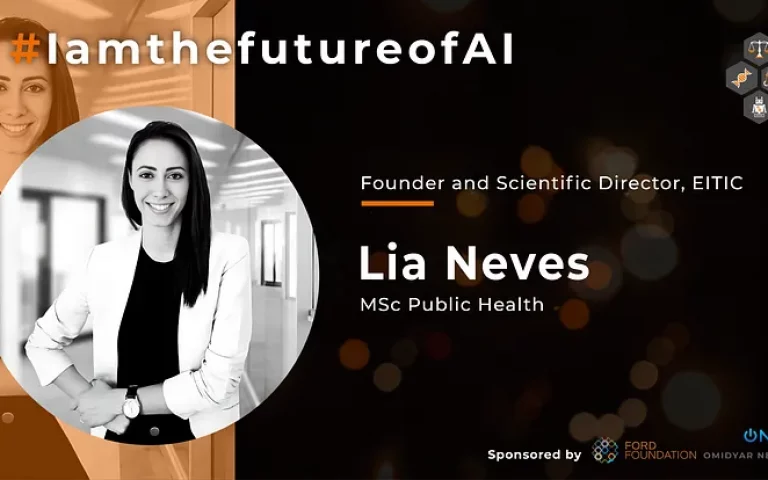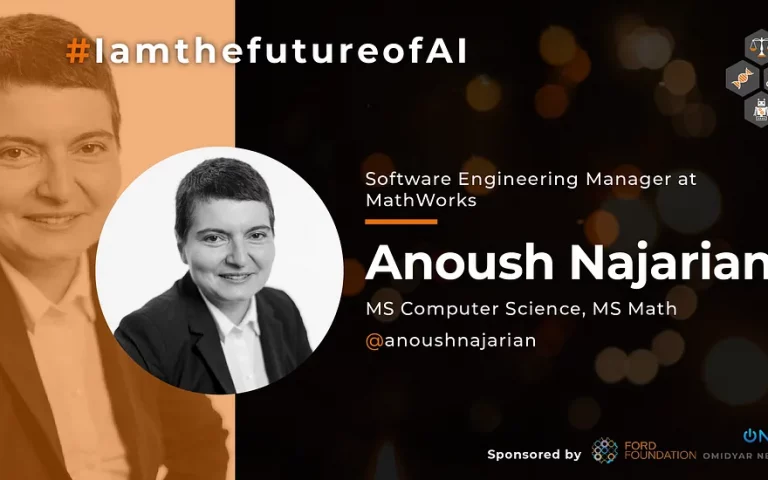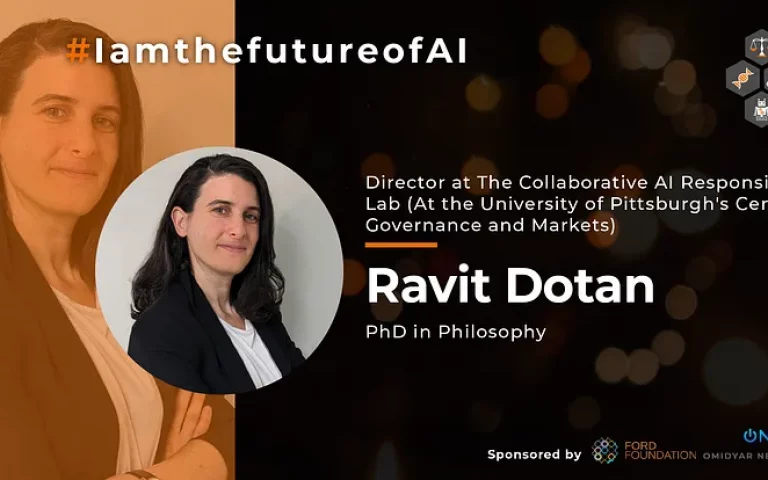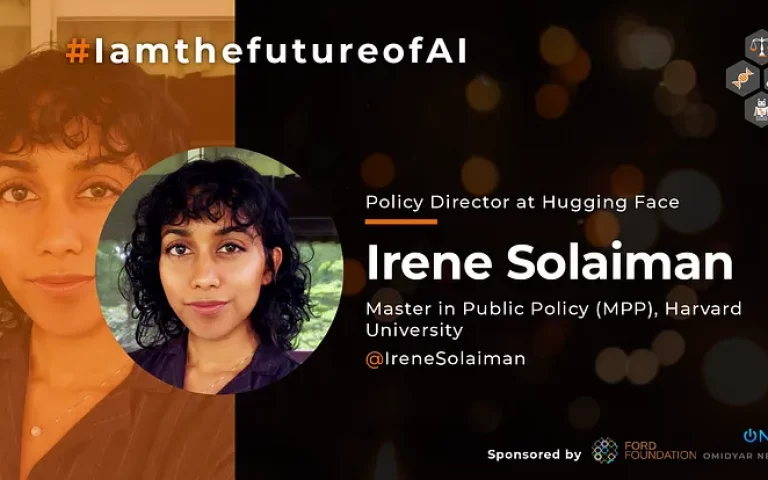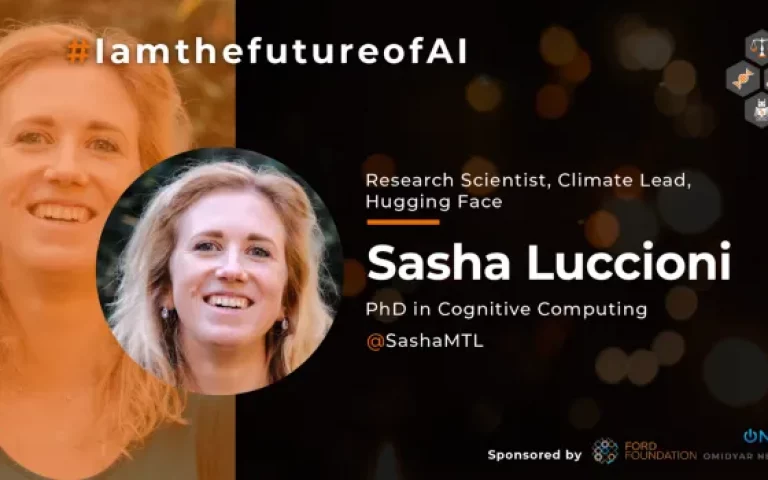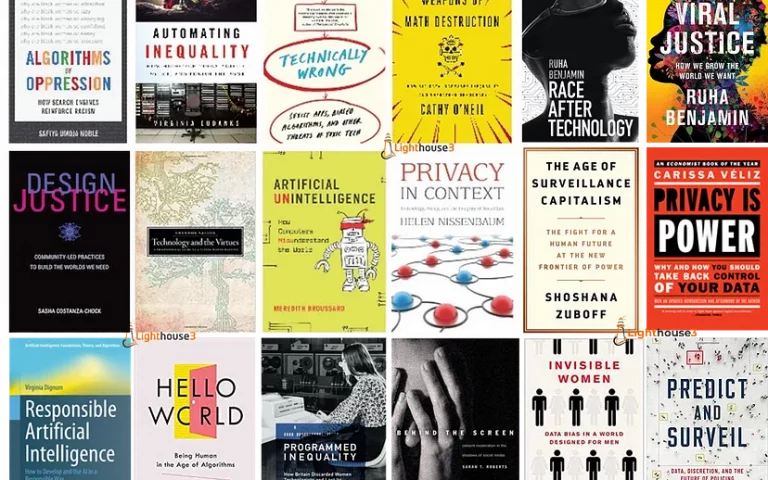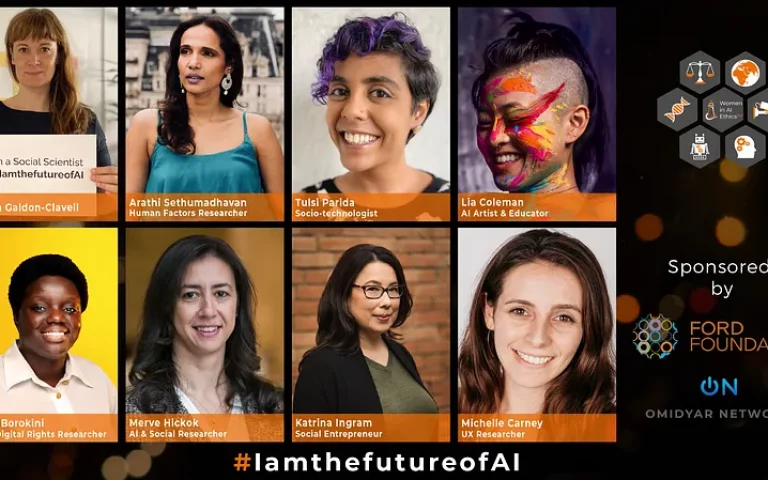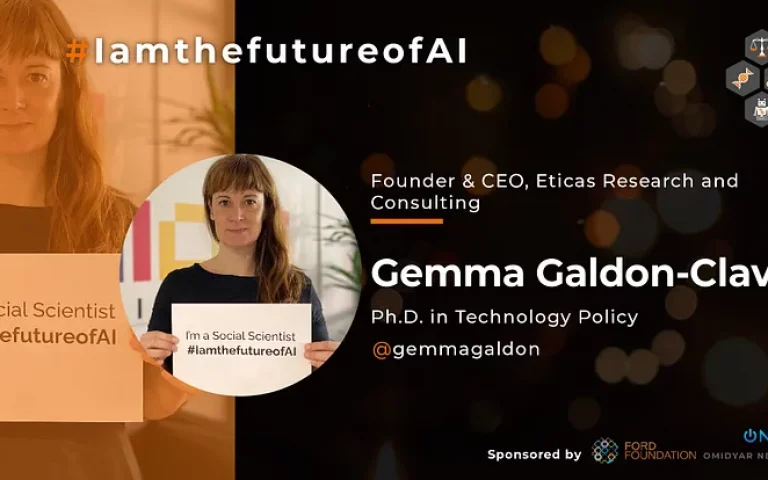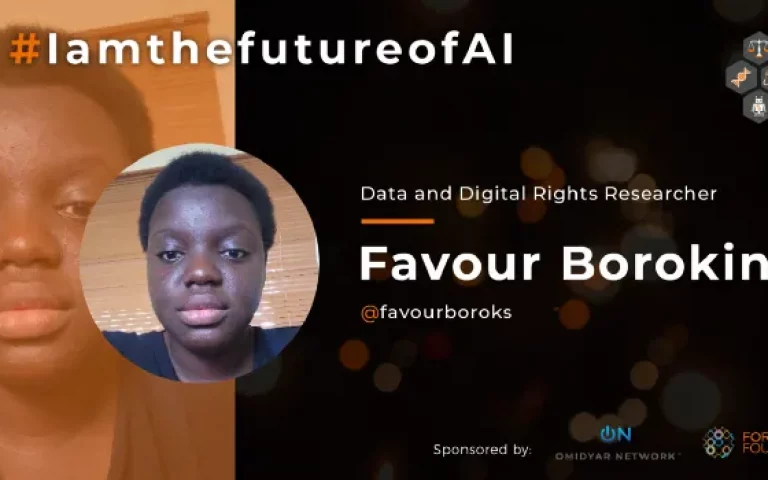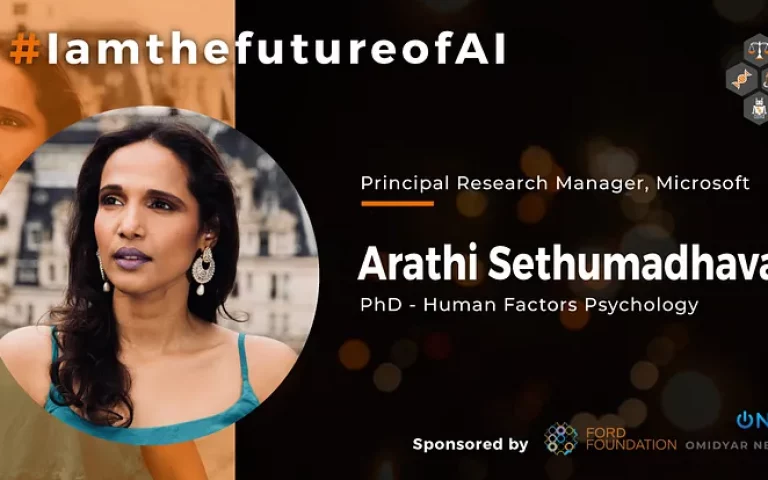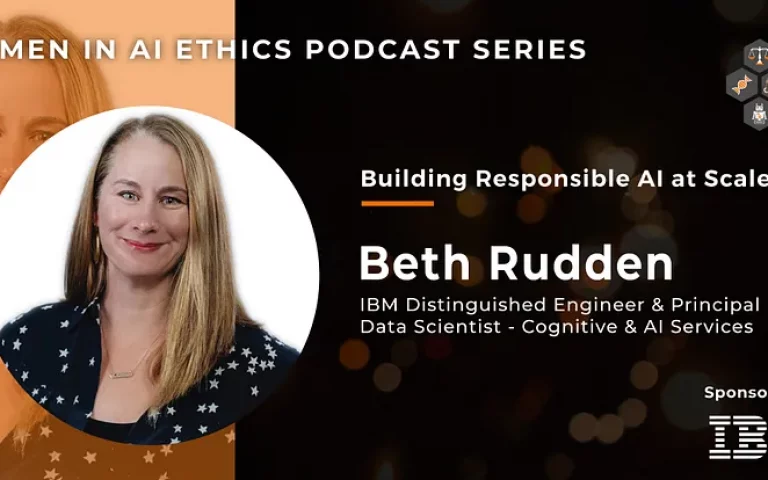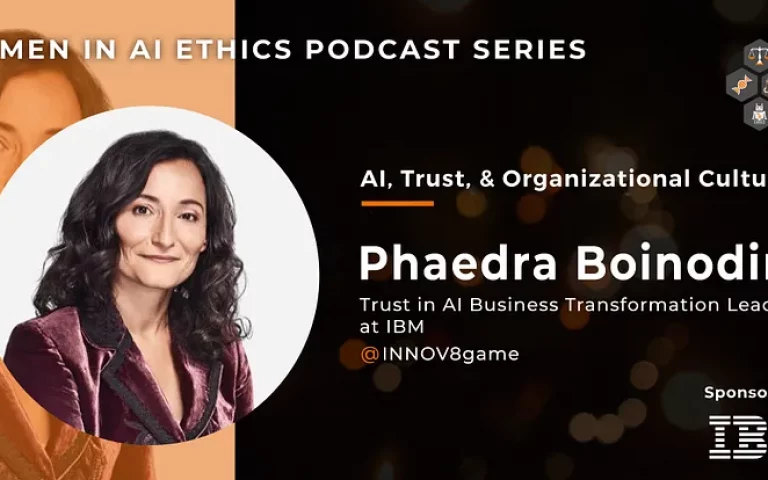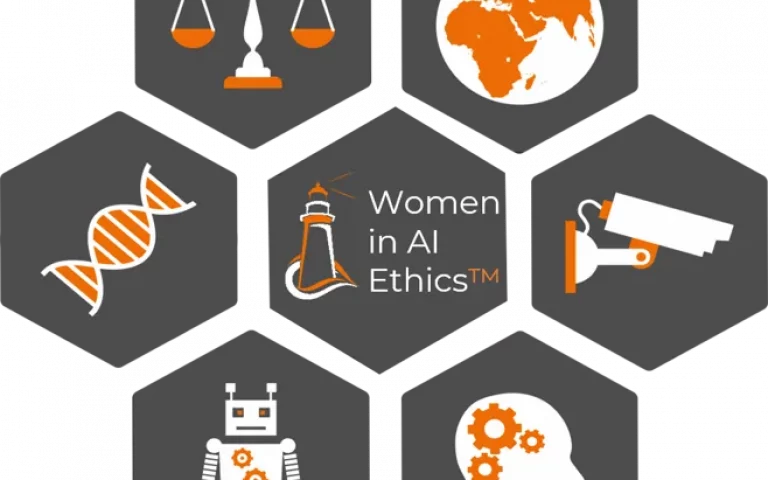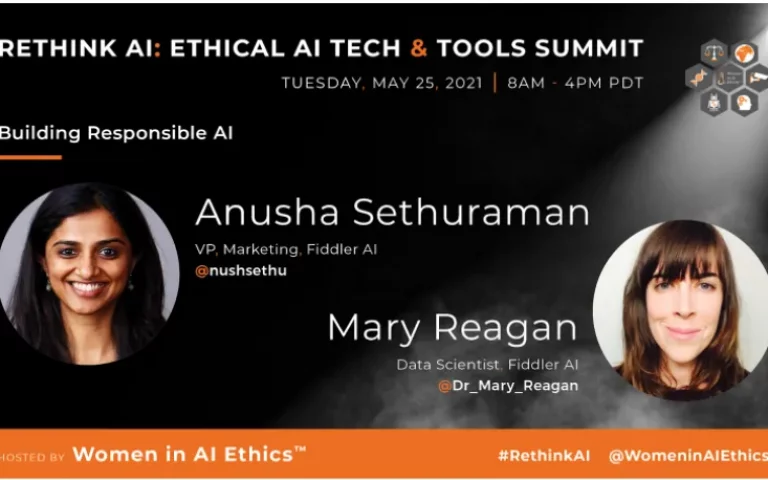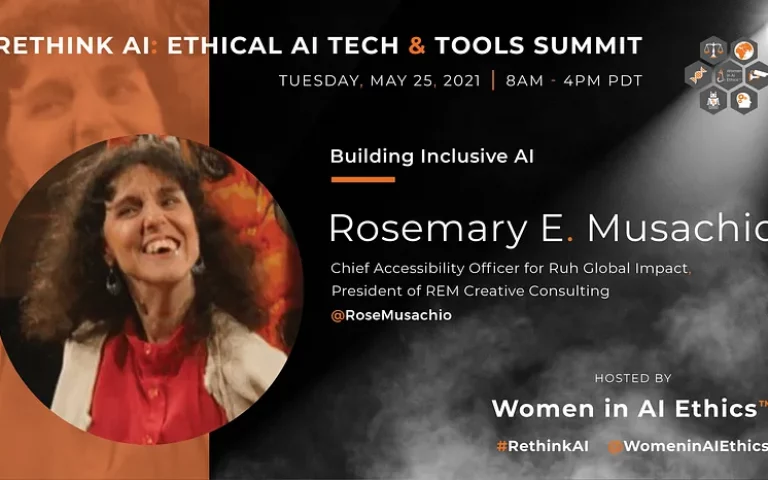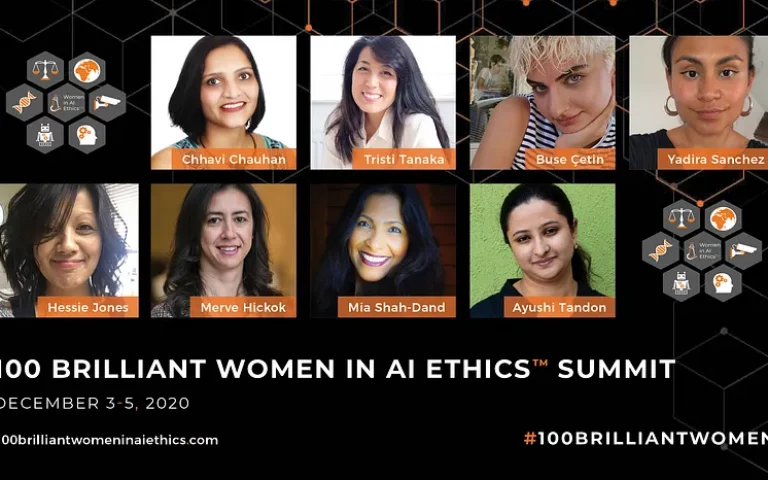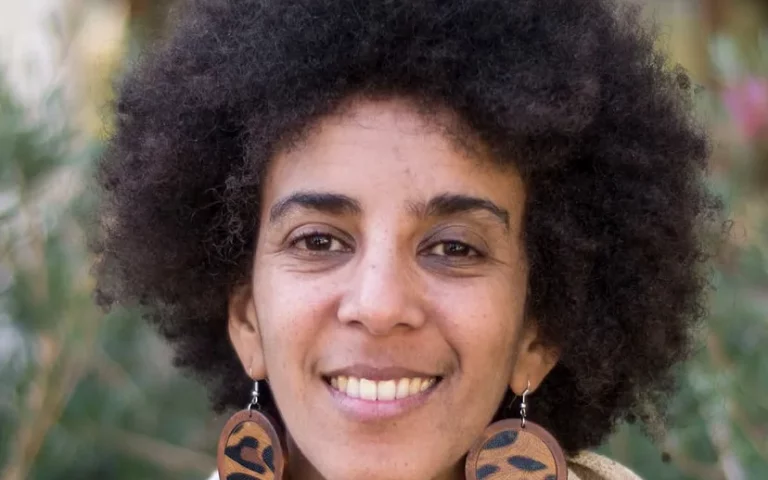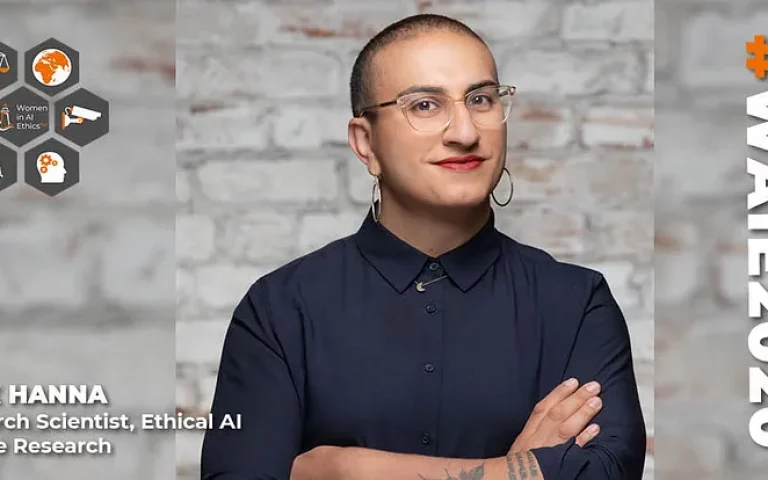The future of AI technology is in our hands, and we have the capacity to do great things if we are willing to accept or acknowledge the shortcomings.
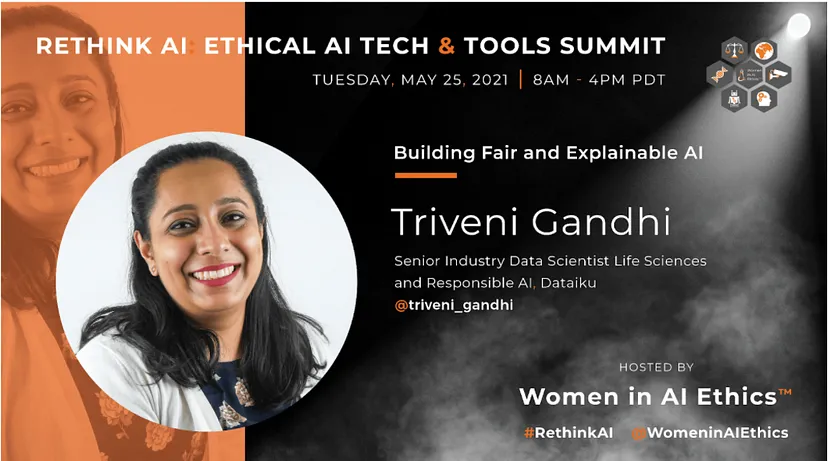
Dr. Triveni Gandhi is a Senior Industry Data Scientist, Life Sciences, and Responsible AI at Dataiku. She has completed her PhD in Political Science and Government.
I had the pleasure of interviewing Triveni, and we talked about the upcoming Women in AI Ethics Event. We are honored that she is speaking at the event. The interview has been edited for length and clarity.
Sharvari: How did you hear about the Women in AI Ethics (WAIE) initiative, and being part of it, what does it symbolize to you?
Triveni: I found out about women in AI ethics sometime last year from someone I follow-on LinkedIn mentioned that an event is coming up and you can apply to present and join the group. Then I couldn’t actually have a chance to join, but it was always in the back of my mind because I think that the AI ethics field is so important and women and especially women of color like black women are most at risk from unethical uses of algorithms and often also the ones who are leading the charge in creating better AI systems and uncovering biases. I also really liked the 100 Brilliant Women in AI Ethics™ list that is published every year and there are some really great names. So WAIE is an important group to have because it does help us recognize the incredible work that so many women are doing in this space. There are hundreds of them every year, and it is like a testament to how many women are creating change.
Sharvari: WAIE has been known to be different or unique compared to other initiatives like Women in AI, Women in Tech, and others. What resonated with you the most about the initiative?
Triveni: I found that the group is dedicated not only to just thinking through and talking about AI ethics issues. But they are taking action. How are we going to put this in motion? How can we act on these really important concepts? I haven’t interacted as much as others in the group, but I have spoken to the founder
and I found her approach and understanding of the key issues at play so up to date that you know it wasn’t like I was talking to somebody who was talking thinking about ethics. It is like a group of women who are really advancing the field and at the same point they are also very welcoming of anyone who was not quite all the way up to speed on everything, and they are looking to learn more.
Sharvari: Why do events like Rethink AI matter and why should folks attend it?
Triveni: What I really like about rethinking AI is that it is about again like the very practical approaches say that now we need to put the rubber to the road and actually get something done here and do it right, and so I think that’s very important just so that we can start moving the conversations from a high level of discussion to sort of discussion to actual like here are some ways that you could go about doing it. I think the event itself will be a really great way to bring together lots of different ideas and people in the space and especially now that we have this energy and momentum behind the entire concept of ethical AI or responsible AI or human tech, whatever you want to call it. Rethink AI momentum can really get a lot done.
Sharvari: Support for women/non-binary/BIPOC communities has been highlighted of late, how should organizations encourage this internally?
Triveni: We should be willing to speak up about those women from different backgrounds. I recently saw a LinkedIn post where 60-minute ran a video about discrimination in facial recognition algorithms. They spoke to
who is the original finder of issues in the facial recognition system. She provided research information and showed them her work. When they ran the actual report they did not reference her work or anything she has done. Rather, they referenced some other works that were not from black women and who in fact had referenced her work. It is so easy to erase those voices which are not often louder. So it is important to support them by being very vocal and speaking about those folks. Especially what happened to Timnit Gebru and Margaret Mitchell. Being able to say we stand by you. Say what happened here is wrong.
Dataiku has a really robust diversity and inclusion (DE & I) program. We have a dedicated DE & I manager. They not only organize programs for women but also underrepresented minority women in technology. We have working groups, business resource groups, and mentorship programs. We also partner with a program in France to support women in STEM and women in Engineering. This is very dear to our organization and we take diversity and inclusion very seriously. We have a project through a volunteering arm called Ikigai, its Dataiku for the good initiative.
Sharvari: How is Dataiku rethinking AI?
Triveni: Dataiku is rethinking AI from the very fundamentals. Traditionally, AI is seen as a black-box, and you have to be an expert and to be heavy in data science, math and engineering which means you have to be a superstar in order to do anything around it. Dataiku is about democratizing AI so that people who have subject-matter expertise and who understand their industry really well can work with data in a very simple and easy-to-use way. Also, people who do heavy coding and want to run deep learning models and build their own architecture can also work with them side by side. So it is really rethinking AI, not as this is a protected or exclusive kind of group. But rather anybody can work together collaboratively. One important thing about Dataiku is that because we make it so easy for anyone to pick up and start building very interesting analytics. We also do recognize that it comes with risk. While people do not know what shortcomings and biases are, we have integrated a number of product features that help highlight them. This helps them understand what the model is doing and makes things from the black box to interpretable and explainable. Dataiku provides an end-to-end process and is easier to oversee so that you are not dealing with it piecemeal, so that you have a model in production for three years, and you forget about it. You have an eye on everything.
Sharvari: What are the initiatives towards ethical and responsible AI development achieved through the Dataiku platform?
There are a number of features in our product that are focused on the machine learning pipeline when it comes to bias and fairness. Since Dataiku is a software development company, we are not going to tell the companies what their ethics are or what their ethics should be. But what we can do is, given your set of intentions and goals, are you building your models and pipelines responsibly? So they are not giving excuses to say that we do not know what we are doing. We help them understand what they are doing and why they made the decision and use that as a baseline.
Come hear Triveni at RETHINK AI: ETHICAL AI TECH & TOOLS SUMMIT on May 25th where she will share more of her insights along with other multi-disciplinary experts from Mozilla Foundation, Omidyar Network, ACLU, Access Now, DuckDuckGo, Dataiku, Fiddler AI and many others building ethical technologies for a more diverse and ethical technology.
https://www.eventbrite.com/e/rethink-ai-ethical-ai-tech-tools-summit-tickets-148958409613?aff=VOL1
